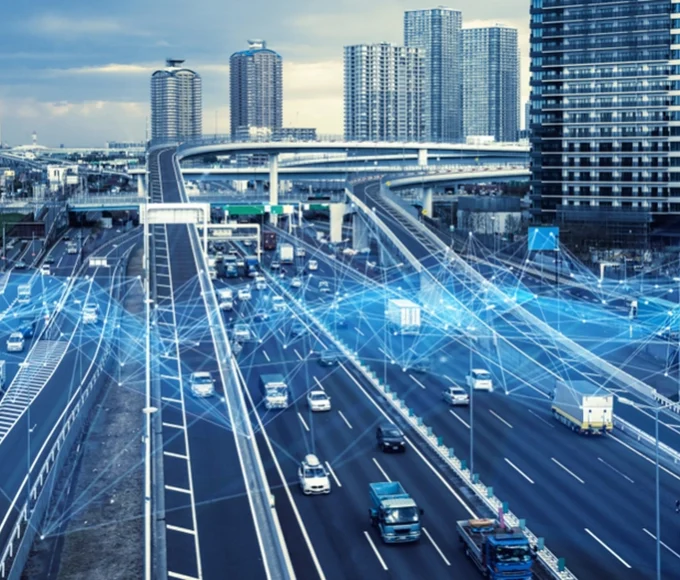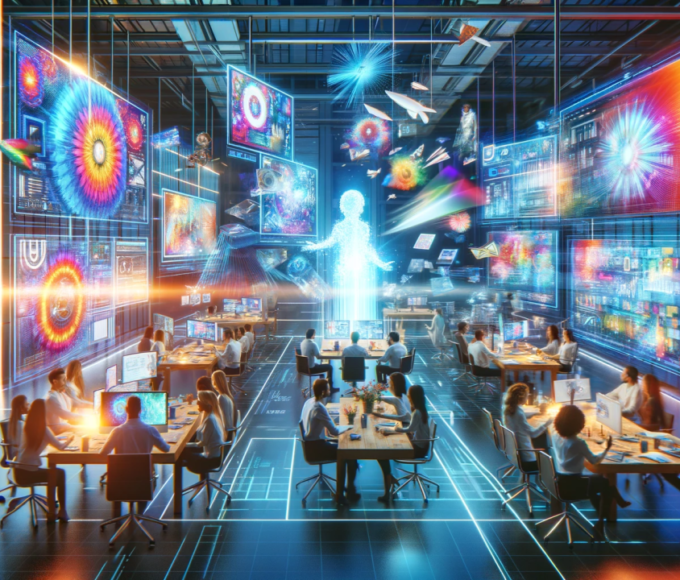India, a country known for its diverse culture, rich heritage, and burgeoning population, has long struggled with transportation challenges. Congested roads, inefficient public transit, and inadequate infrastructure have been significant impediments to economic growth and the quality of life for millions of Indians. However, in recent years, Artificial Intelligence (AI) has emerged as a game-changer in revolutionizing India’s transportation system. AI-powered solutions are transforming the way people move and goods are transported across the country. This article explores the ways AI is making transportation in India smarter, safer, and more efficient.
Traffic Management and Optimization
One of the most significant applications of AI in India’s transportation system is traffic management and optimization. India’s major cities, like Delhi, Mumbai, and Bangalore, are notorious for their traffic congestion. AI algorithms, powered by real-time data from sensors, cameras, and GPS devices, can analyse traffic patterns, predict congestion, and suggest alternative routes to reduce travel times. For instance, apps like Google Maps and Waze use AI to provide real-time traffic updates and rerouting options.
AI also plays a crucial role in managing traffic signals more efficiently. Adaptive traffic signal systems use AI to adjust signal timings based on real-time traffic conditions, reducing waiting times and fuel consumption. Such systems have been successfully implemented in cities like Pune and Surat.
Public Transportation Enhancement
AI is enhancing the quality and efficiency of public transportation systems in India. Cities like Ahmedabad have implemented AI-powered predictive maintenance systems for buses and trains. These systems use AI algorithms to predict when maintenance is required, reducing downtime and ensuring that public transport remains reliable.
Additionally, AI chatbots and virtual assistants have been deployed by various public transportation authorities to provide real-time information on routes, schedules, and delays. Passengers can now receive updates and make informed decisions about their journeys through mobile apps and websites.
Ride-Sharing and Mobility Solutions
Ride-sharing services like Uber and Ola have become a staple in India’s urban transportation landscape. These platforms leverage AI for several purposes, including matching drivers with passengers, optimizing routes, and determining fare estimates. AI algorithms take into account factors such as traffic conditions and demand patterns to ensure efficient and cost-effective rides.
Moreover, AI-based mobility solutions are promoting the adoption of electric vehicles (EVs) in India. Electric scooters and bikes are becoming increasingly popular in cities like Bengaluru, thanks to AI-driven rental platforms that provide convenient access to EVs.
Safety and Security
Safety on India’s roads has long been a concern. AI is now playing a pivotal role in enhancing road safety through technologies like advanced driver-assistance systems (ADAS) and autonomous vehicles. ADAS features, such as lane-keeping assistance and adaptive cruise control, use AI to assist drivers and reduce the risk of accidents.
Autonomous vehicles are also on the horizon in India. Several startups and research institutions are working on developing self-driving cars and trucks that could improve road safety and reduce traffic congestion in the long term. Hi-Tech Robotic Systemz is one such start up which is working in this domain.
Cargo and Freight Management
The efficient movement of goods is critical for India’s economy. AI is revolutionizing the logistics and freight management sector by optimizing supply chain operations. AI-powered systems can predict demand, track shipments in real-time, and optimize routes to minimize delivery times and costs.
Companies like Flipkart and Amazon are utilizing AI-driven algorithms for inventory management, demand forecasting, and last-mile delivery optimization. This not only benefits businesses but also ensures faster and more reliable deliveries for consumers.
Artificial Intelligence is ushering in a new era of transportation in India. From traffic management and public transportation enhancement to ride-sharing and safety improvements, AI is transforming the way people and goods move across the country. As AI continues to advance, we can expect more innovative solutions that address India’s unique transportation challenges and make travel safer, more efficient, and more convenient for all its citizens.
With the right investments and policies, India’s transportation system has the potential to become a model of efficiency and sustainability in the years to come.
















Leave a comment